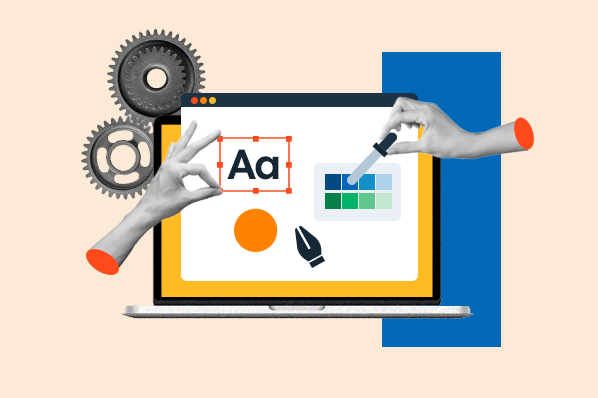

Over several years as a digital marketer specializing in SEO, I’ve explored and engaged with numerous free web builder platforms including CMS Hub, WordPress (both .com and .org), Wix, Weebly, and Webflow, among others.
Website construction tools have been crucial for publishing my content professionally, whether for my employer or my personal endeavors. I’ve grown very familiar with these tools and their diverse features due to consistent use over time.
For those new to online site creation, selecting a website builder can be daunting. If you’re uncertain about coding, contemplating the best free options, or wondering about domain name quality, allow me to enlighten you with more details.
First, let’s review the fundamentals.
Table of Contents
What is a website builder?
A website builder is an online tool for creating websites, offering a range of features like web hosting, design templates, and web page editors, differing by provider. Free versions often provide hosting and a brand-specific domain name.
Maybe you’ve been contemplating website creation, you’re likely acquainted with options. There’s the path of buying hosting and a domain name, then installing a favored CMS like WordPress.org or Joomla.
From my perspective, the downside to installing CMSs like Joomla or WordPress is their default lack of content. Starting as blank slates, they necessitated either significant personal effort or a developer to prevent an unpolished look. In contrast, free website builders I’ve tested, like CMS Hub or WordPress.com, provided fuller thematic content from the outset.
[Further exploration into the specific website builders and their features, including individual assessments, advantages, and disadvantages, as well as concluding recommendations.]


